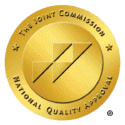Adderall Rehab: What to Expect
Millions of people take Adderall on a prescription basis to alleviate the symptoms of attention-deficit/hyperactivity disorder (ADHD). Most people who use this medication as directed don’t experience harmful effects. But those who intentionally abuse the drug put themselves at risk for a variety of negative outcomes, including Adderall addiction. Luckily, help for this addiction is available at an Adderall rehab such as Sanctuary Treatment Center.
What Is an Adderall Rehab?
Adderall rehab can refer to a several different programs that are designed to help people who have become dependent on this addictive stimulant.
Depending on factors such as the severity of a person’s Adderall addiction, their treatment history, and if they have any co-occurring mental health disorders, their experience in an Adderall prescription rehab may include detoxification, inpatient treatment, and/or outpatient care.
Adderall Addiction: Why Going to Rehab Is Necessary
In 2020, pharmacies in the United States filled more than 41 million prescriptions for Adderall and other ADHD medications. Given both the legality of these drugs and their widespread use, they must be relatively harmless, right?
Not necessarily.
Adderall contains racemic amphetamine and dextroamphetamine. Both of these substances are stimulants. Both are also addictive.
When a person who has ADHD takes Adderall as directed by their physician, they can benefit from the medication with minimal risk of serious problems. Unfortunately, Adderall’s effects (including increased energy and improved focus) have made it popular among people who are looking for a cognitive boost – such as those who are studying for a test or working late on an important project.
Some people also abuse Adderall as a recreational substance, using the drug as a way to stay awake longer or to counteract the depressant effects of alcohol.
Side Effects of Adderall Addiction
Regardless of why a person abuses this drug, continuing to do so exposes them to effects such as:
- Headaches
- Racing heart rate and chest pain
- Nausea, vomiting, and diarrhea
- Fever
- Tics and tremors
- Insomnia
- Sexual dysfunction
- Exhaustion and fatigue
- Dehydration
- Mood swings
- Anxiety and agitation
- Impaired dopamine production
- Malnutrition
- Seizure
- Addiction
When a person’s Adderall abuse turns into an addiction, they will no longer be able to moderate how much of the drug they use or how frequently they use it. The compulsions that are characteristic of Adderall addiction can rob a person of their health, their independence, and their dignity. Without effective care, they may not be able to regain control of their life.
Signs of an Adderall Addiction
The following are examples of common signs that a person has developed Adderall addiction:
- Finding it difficult to get through the day without using Adderall
- Spending considerable amounts of time thinking about, acquiring, and using Adderall
- Using Adderall in ways that are especially hazardous, such as ingesting excessive amounts or combining it with alcohol
- Continuing to use Adderall even after incurring harm as a direct result of prior use
- Failing to meet personal, academic, or work-related responsibilities due to their Adderall abuse
- Developing tolerance, which means they have to take larger amounts of the drug to achieve the effects they are seeking
- Experiencing withdrawal symptoms when they abruptly stop using Adderall or when they are prevented from acquiring and using the drug
- Wanting to end their Adderall use, trying to do so, but being unable to stop
Someone who exhibits these types of signs should be assessed by a qualified professional who can provide them with an accurate diagnosis and recommend appropriate treatment options.
What to Expect During Adderall Rehab
As we alluded to earlier in this post, different people can have different experiences in Adderall rehab depending on their specific needs and treatment goals. In general, though, here are examples of what you can expect:

- Detoxification: If withdrawal symptoms have prevented you from ending your Adderall abuse, you may need to begin rehab in a detox program. Detox is a short-term service that is designed to keep you as comfortable as possible as you rid your body of Adderall. The professionals who care for you while you are in detox may be able to provide both medical and therapeutic support to ease your discomfort and help you manage your symptoms.
- Inpatient rehab: At the inpatient level, you will live at the center where you are receiving care. This allows you to temporarily step away from the stresses and distractions of everyday life, so that you can focus your full attention on your treatment. During your time in inpatient rehab for Adderall addiction, you will follow a structured daily schedule that includes a variety of therapies and support services, as well as meals and supervised recreational and leisure activities.
- Outpatient treatment: When you are in an outpatient program, you only need to be at the facility when treatment is in session. During non-treatment hours your time is yours to spend as you see fit. The amount of time you spend in an outpatient program can vary considerably from one center to the next. At Sanctuary Treatment Center, we offer six hours of daily outpatient care (10 a.m. to 4 p.m.), five days per week (Monday to Friday).
Some people who enter treatment for Adderall addiction start with detox, transfer into inpatient rehab, then step down to an outpatient program for additional support. Others may only spend time at one or two of these levels.
There is no such thing as an effective one-size-fits-all approach to Adderall rehab. What’s most important is identifying the levels of care and types of services that best meet each person’s unique needs.
Benefits of Our Adderall Rehab Center in Los Angeles, California
Here are a few of the many potential benefits of receiving care for Adderall addiction at Sanctuary Treatment Center:
- We offer a full continuum of care, including detox, residential treatment, and outpatient programming.
- You will complete a thorough assessment and receive a personalized treatment plan.
- Your care will be provided by a team of highly skilled and experienced professionals.
- Our team is committed to maintaining a safe, respectful, and supportive environment for all patients, staff members, and visitor.
- You and your loved ones can participate in family therapy at our center. These sessions can help your family members process how they have been affected by your struggles with Adderall addiction and learn how to best support your recovery efforts.
- You can develop essential skills in vital areas such as conflict resolution, stress and anger management, and relapse prevention, all of which can help you throughout your recovery journey.
- You can discover the power of sharing support with others who have had similar struggles and who are working toward a future that is free of compulsive substance abuse.
Contact Our Rehab for Adderall Addiction Today
When you are trapped in the downward spiral of active Adderall addiction, it can sometimes feel like there is no escape. If this sounds familiar to you, please know these truths:
- You are not alone.
- Help is available.
- You are capable of more than you realize.
- You deserve to live a healthier and more hopeful life.
When you’re ready to get started, Sanctuary Treatment Center is here for you. To learn more about our programs and services or to schedule a free assessment, please visit our Contact Us page or call us today.






